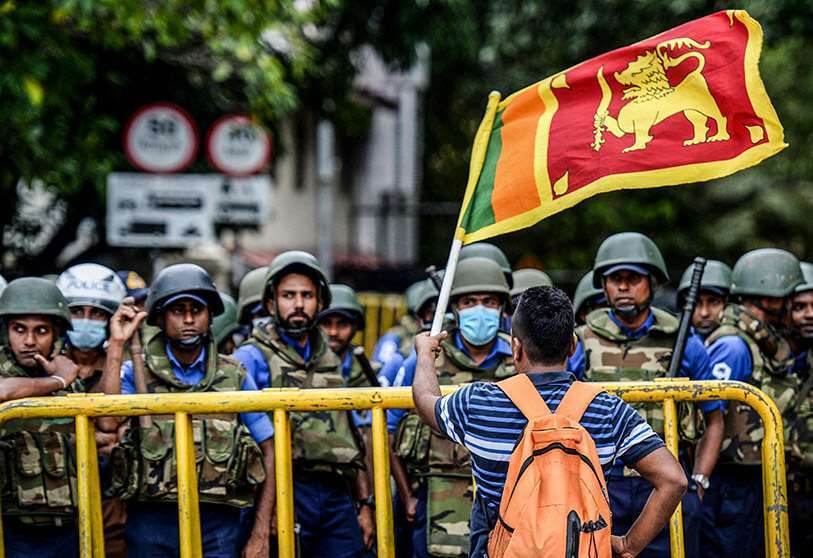Sri Lanka: new government unleashes police in wake of protests

Sri Lanka's executive capital, Colombo, is experiencing a wave of repression after weeks of demonstrations over the country's economic and social crisis that drove President Rajapaksa into exile in Singapore in early July. With a new government headed by Ranil Wickremesinghe, Rajapaksa's former prime minister, and a return to calm on the streets, the authorities are warning of the exiled ex-president's return and paving the way for him with a busy police crackdown.
The new government activated the necessary state mechanisms to declare a state of emergency and deploy military forces on the streets. The island nation's armed forces were used to maintain order on the streets of Colombo, while police authorities carried out a thorough plan to arrest a list of hundreds of activists who took part in the protest actions at the beginning of July, according to social media reports from protesters.

The Emirati media Al-ain quotes a senior Ceylonese police official as saying that the number of people identified by the authorities this week has risen to 300. Testimonies gathered by EFE correspondents speak of a situation of insecurity in the streets of Colombo due to the brutality of police action. "We are living in constant fear these days, I personally don't know what to do now," a Ceylonese protester named Chanu Nimesha told EFE, saying that staying around the protesters' barricades in Gota Go Gama square is no longer safe.
So far, some of the leaders of the Gota Go Gama camp have been arrested by the Sri Lankan authorities. Among them Danish Ali, arrested in his attempt to leave the country for the United Arab Emirates. According to EFE, Danish Ali was arrested on the same plane, after he had already boarded.
Verange Pupishka, another leader of the riots, was also arrested during a police raid on a church where several protesters were gathered, according to the Sri Lanka Journalists for Democracy Association.

The opposition to the government has strongly criticised the arrests and the climate of repression in the country. Congressman Mathiaparanan Sumanthiran told local media that the latest arrests are a clear abuse of power by the new government. According to Sumantharian, the government's response to property damage crimes is reportedly disproportionate.
Meanwhile, the new government, made up mainly of members of the previous one, claims to be looking for solutions to tackle the serious crisis in which the country is immersed. The lack of fuel is weighing on Sri Lanka's economy at a time when the country was in the midst of growth and was being compared to neighbouring Singapore. Negotiations with the World Bank and the IMF are reportedly underway to restructure the country's energy supply routes, according to Energy Minister Kanchana Wikesekera.








